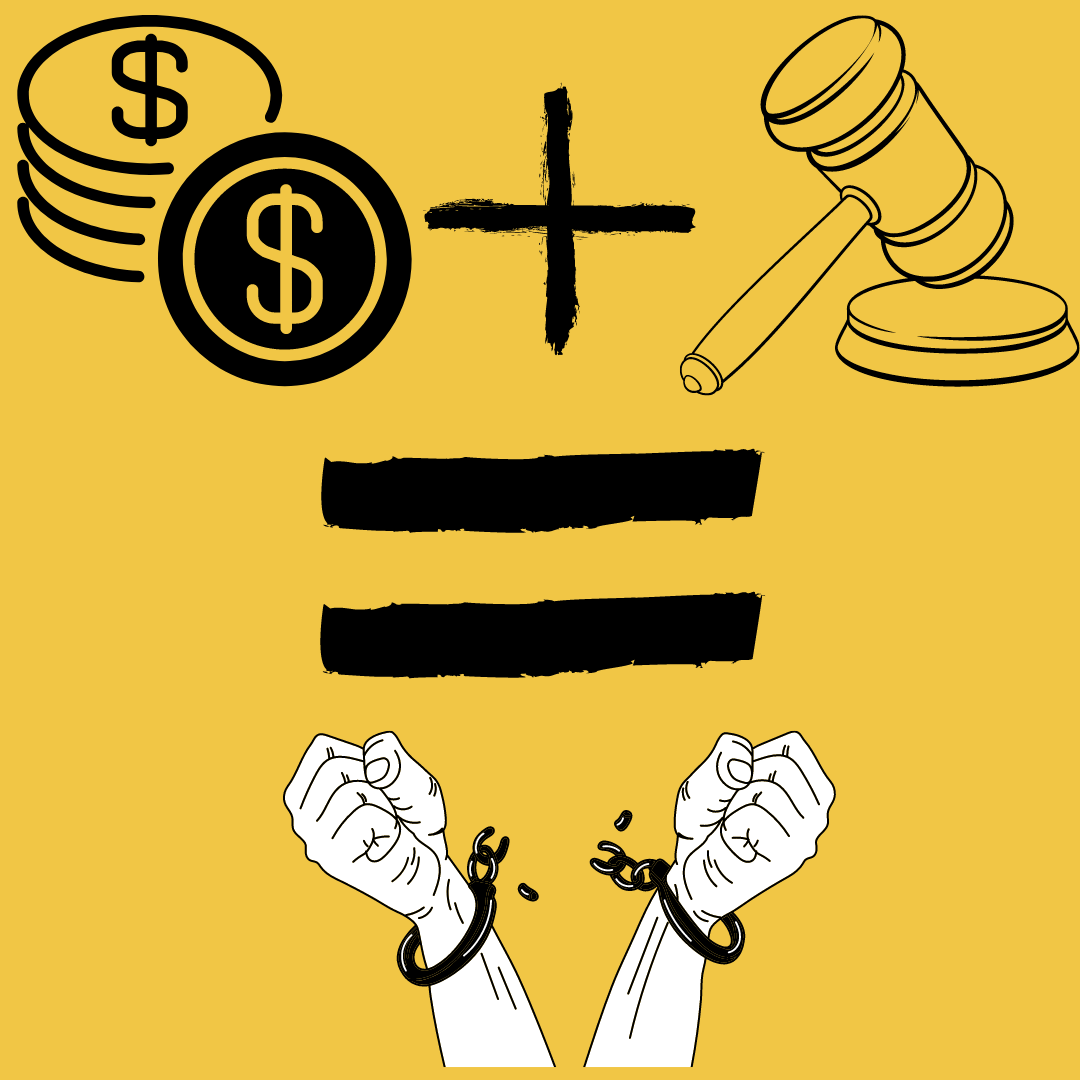Bail
Definition
Bail refers to the temporary release of an accused person awaiting trial, sometimes on condition that a sum of money is lodged to guarantee their appearance in court. In another context, it can mean to remove water from a boat or to abandon a commitment or situation.
Parts of Speech
- Noun
- Verb
Pronunciation
American English
- IPA Pronunciation: /beɪl/
- Respelling: bayl
British English
- IPA Pronunciation: /beɪl/
- Respelling: bayl
The pronunciation of "bail" is consistent in both American and British English.
Etymology
The word "bail" originates from the Old French "bailler," meaning "to deliver or hand over," which itself is derived from the Latin "bajulare," meaning "to bear a burden." In the legal sense, it has been used since the late Middle Ages to refer to the practice of releasing an accused person on condition of a monetary pledge.
Derivatives
- Bailout (noun)
- Bailee (noun)
- Bailor (noun)
- Bailable (adjective)
- Bailment (noun)
Synonyms
- Release
- Bond
- Freedom
Antonyms
- Detention
- Imprisonment
- Confinement
Usage
The term "bail" is commonly used in legal contexts to describe the temporary release of an accused person under specific conditions. Additionally, "bail" as a verb is used to describe the act of abandoning a situation (e.g., "He decided to bail on the project") or removing water from a boat ("They had to bail water to keep the boat afloat").
Related Terms
- Bond: A sum of money paid as a pledge to secure temporary freedom.
- Bailment: A legal relationship where one party temporarily gives possession of property to another.
- Arraignment: A court proceeding where the charges against the accused are read.
Detailed Definitions
Noun
- Temporary release of an accused person: The conditional release of someone awaiting trial, often involving the payment of a sum of money.
- Example: "The judge set a high bail for the defendant."
Verb
- To abandon a situation: To leave or withdraw from a commitment or project.
- Example: "She decided to bail on the meeting at the last minute."
- To remove water from a boat: To scoop water out of a boat to prevent it from sinking.
- Example: "They bailed water from the boat to stay afloat."
bail



🇨🇳 Mandarin
- 保释 (bǎoshì)
- IPA Pronunciation: /paʊ̯˨˩˦ ʂʐ̩˥˩/
- Respelling: bao-shee
🇮🇳 Hindi
- जमानत (jamaanat)
- IPA Pronunciation: /dʒəmaːnat/
- Respelling: juh-maa-nut
🇪🇸 Spanish
- fianza
- IPA Pronunciation: /fjˈanja/
- Respelling: fee-ahn-ya
🇫🇷 French
- caution
- IPA Pronunciation: /kɔ.sjɔ̃/
- Respelling: koh-syon
🇸🇦 Modern Standard Arabic
- كفالة (kafāla)
- IPA Pronunciation: /kaˈfaːla/
- Respelling: kah-faa-lah
🇧🇩 Bengali
- জামিন (jāmin)
- IPA Pronunciation: /dʒamin/
- Respelling: ja-meen
🇷🇺 Russian
- залог (zalog)
- IPA Pronunciation: /ˈzaləɡ/
- Respelling: zah-log
🇵🇹 Portuguese
- fiança
- IPA Pronunciation: /fiˈɐ̃sɐ/
- Respelling: fee-ahn-suh
🇮🇩 Indonesian
- jaminan
- IPA Pronunciation: /dʒaˈminan/
- Respelling: jah-mee-nahn
🇩🇪 German
- Kaution
- IPA Pronunciation: /kaʊ̯ˈtsi̯oːn/
- Respelling: kow-tsee-ohn
🇯🇵 Japanese
- 保釈 (ほしゃく, hoshaku)
- IPA Pronunciation: /hoːɕakɯ/
- Respelling: hoh-shah-koo
🇻🇳 Vietnamese
- tiền bảo lãnh
- IPA Pronunciation: /tʲin ɓaːw˧˩˧ laʲŋ˧˩˧/
- Respelling: teen bao lahng
🇰🇷 Korean
- 보석금 (boseokgeum)
- IPA Pronunciation: /bo.sʌk.k͈ɯm/
- Respelling: boh-seok-geum
🇹🇷 Turkish
- kefalet
- IPA Pronunciation: /kefaːlet/
- Respelling: keh-fah-let
🇵🇰 Urdu
- ضمانت (zamanat)
- IPA Pronunciation: /zəmɑːnat/
- Respelling: zuh-maa-nat





